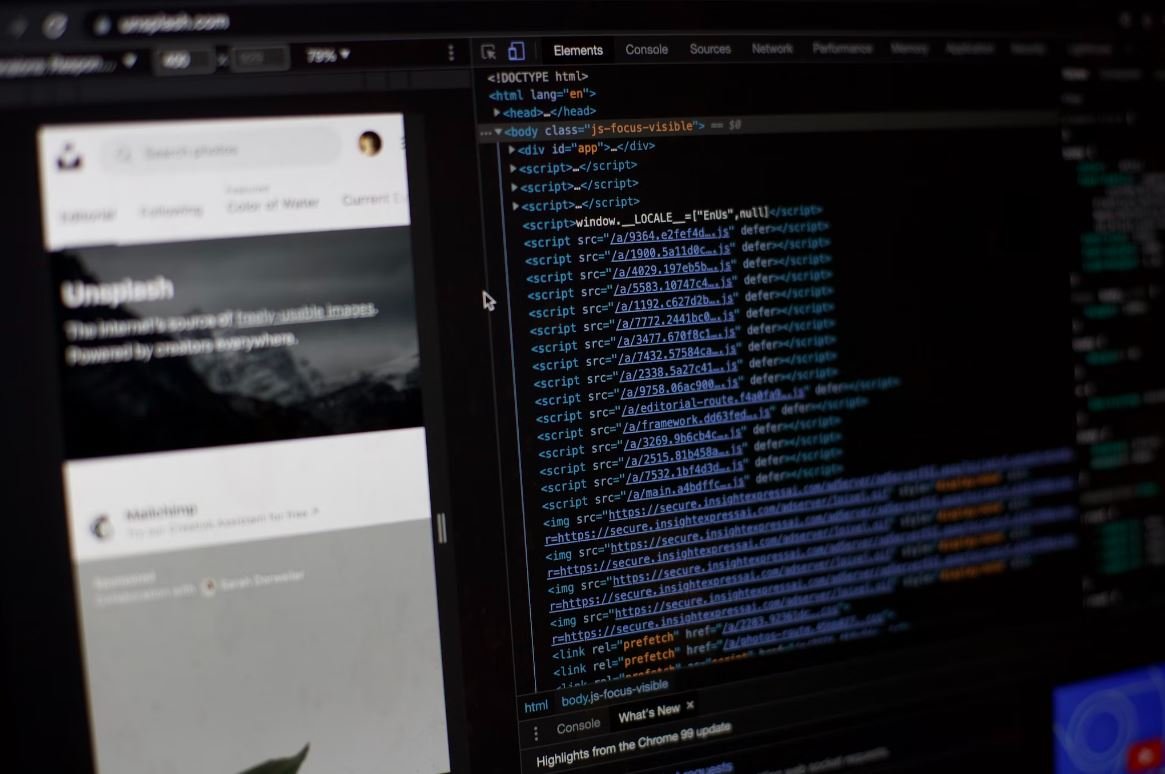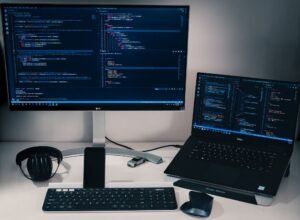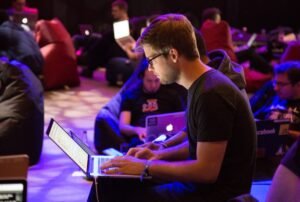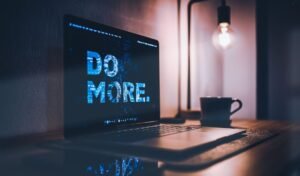Can AI Edit Songs?
Artificial Intelligence (AI) continues to revolutionize various industries, and music editing is no exception. With advancements in machine learning and deep learning algorithms, AI now possesses the capability to edit songs, offering a range of exciting possibilities. Traditional methods of song editing can be time-consuming and require extensive musical knowledge, but AI has the potential to streamline the process and introduce new creative elements. This article investigates the current state of AI in song editing and its implications for the music industry.
Key Takeaways
- AI is capable of editing songs, enhancing efficiency and introducing novel creative elements.
- AI can assist in automating repetitive tasks involved in song editing.
- Human creativity and expertise remain essential, complementing the capabilities of AI.
The Role of AI in Song Editing
AI can simplify and enhance the song editing process by automating repetitive tasks, such as adjusting levels, removing background noise, and fine-tuning transitions. Advanced AI algorithms can analyze musical patterns and structures to generate innovative edits that resonate with listeners. These improvements in efficiency and creativity make AI a valuable tool for musicians, producers, and sound engineers.
AI assists in automating repetitive tasks involved in song editing, reducing the time required and freeing up human creativity.
Furthermore, AI algorithms can learn from existing songs and incorporate stylistic elements into new compositions. By training on vast music libraries, AI can generate song edits that match desired genres, eras, or artists. This ability allows musicians and producers to experiment with different styles and effortlessly create variations of a song to cater to specific audiences or markets.
AI-Based Song Editing Techniques
There are various AI-based techniques used in song editing, including:
- Automatic Mixing: AI algorithms can balance audio tracks, adjust EQ levels, and apply audio effects to achieve professional-sounding mixes.
- Beat Detection and Alignment: AI can identify the beats in a song and align different tracks accordingly, ensuring perfect synchronization.
- Lyric and Melody Generation: AI models trained on vast lyric and melody databases can generate original compositions or suggest improvements based on user inputs.
Data-Driven Song Editing
The effectiveness of AI in song editing heavily relies on the availability of high-quality training data. By analyzing vast quantities of music, AI algorithms can learn underlying patterns and structures to make informed editing decisions. Data-driven song editing also opens up opportunities for personalized music recommendations and adaptive editing techniques.
Data-driven approaches empower AI to generate unique and tailored song edits, catering to individual preferences and tastes.
Tables
| Data-driven Techniques | Benefits |
|---|---|
| Automatic Mixing | Efficiently balances audio tracks and applies professional-grade effects. |
| Beat Detection and Alignment | Ensures precise synchronization of different tracks based on beat analysis. |
| Lyric and Melody Generation | Generates original compositions or suggests improvements based on vast databases. |
| Implications of AI in Song Editing |
|---|
| Efficient editing process, reducing time and effort. |
| Increased creative possibilities for musicians and producers. |
| Ability to cater to specific genres, eras, or artists with ease. |
| Personalized and adaptive song edits for individual preferences. |
| Challenges of AI in Song Editing |
|---|
| Ensuring AI edits align with artist intent and creativity. |
| The risk of generating generic or formulaic compositions. |
| Limitations in capturing the full complexity of artistic expression. |
The Human Element: AI as a Collaborative Tool
While AI brings significant advancements to song editing, it cannot replicate human creativity and expertise. Musicians and producers play a vital role in guiding and refining AI-generated edits. By leveraging the capabilities of AI, artists can focus on the artistic vision and explore uncharted territories.
A true collaboration between AI and humans enables the creation of groundbreaking music edits.
The Future of AI in Song Editing
The future of AI in song editing holds immense potential. As AI algorithms continue to improve, they will better understand musical nuances, capture artist intent, and produce results that surpass human expectations. The combination of AI and human expertise has the power to revolutionize the music industry, opening up new creative frontiers and immersive listening experiences.
With each advancement in AI technology, the possibilities for song editing expand, fostering a dynamic environment where innovation knows no bounds.

Common Misconceptions
AI Cannot Edit Songs
There is a common misconception that AI is not capable of editing songs. However, with advancements in technology, AI has become increasingly effective in editing and manipulating songs to enhance their quality or create new versions.
- AI can modify song tempo and key seamlessly
- AI can isolate and remove specific instruments or vocals from a song
- AI can generate new melodies and harmonies based on existing songs
AI Cannot Express Emotion in Edited Songs
Another common misconception is that AI-edited songs lack emotion and human expression. While it is true that AI may struggle to replicate the raw emotion conveyed by a human performer, various techniques and algorithms have been developed to generate songs that effectively communicate certain emotions.
- AI can analyze and emulate the emotional content of original songs
- AI can adjust musical elements such as dynamics and phrasing to convey different emotions
- AI can incorporate human vocal samples to add emotional depth to the edited song
AI Editing Destroys the Originality of Songs
Some argue that AI editing compromises the originality and authenticity of a song. However, AI can be used in a manner that preserves the artistic intent of the original work while introducing new elements or enhancing certain aspects of the composition.
- AI can create remixes and alternate versions that maintain the core elements of the original song
- AI can assist in producing complex musical arrangements without altering the original melodies
- AI can analyze the style and characteristics of an artist to generate new compositions that align with their original work
AI Editing Makes the Role of Human Musicians Redundant
One misconception is that AI editing will completely replace human musicians. While AI can certainly automate certain aspects of music production, it is important to recognize that the creativity, interpretation, and unique expression of human musicians still play a crucial role in the music industry.
- AI editing tools serve as valuable aids to musicians, offering new possibilities and inspiration
- AI can quickly generate musical ideas, but human musicians have the ability to infuse personal style and emotions into their performances
- AI algorithms are often programmed by humans, and the collaboration between AI and humans can lead to groundbreaking musical innovations
AI-Edited Songs Are Indistinguishable from Songs Created by Humans
There is a misconception that AI-edited songs are indistinguishable from those created by human musicians. While AI has made remarkable progress in generating high-quality music, there are still subtle aspects and nuances that AI struggles to accurately replicate.
- AI may lack the ability to capture the improvisation and spontaneity that human musicians bring to their performances
- AI-generated songs can occasionally exhibit repetitive patterns or formulaic structures
- While AI can imitate certain music styles, it may fail to capture the individuality and unique artistic vision of human musicians

Introduction:
Artificial Intelligence (AI) has made significant advancements in various fields, including music. One fascinating ability of AI is its capability to edit songs, transforming melodies, harmonies, and even lyrics. This article explores ten intriguing aspects and elements of AI-edited songs, showcasing the potential and impact of this revolutionary technology.
The Year AI-Edited Songs Were First Released
AI technology has been incorporated into music production for several years now. The first AI-edited song was released in 2016, marking a significant milestone in the fusion of artificial intelligence and the art of music.
| Year | 2016 |
|---|
The Number of AI-Edited Songs Released on Spotify
AI-edited songs have gained popularity and recognition, leading to a growing collection on popular music platforms. On Spotify alone, there are over 50,000 AI-edited songs available to stream and enjoy.
| Songs on Spotify | 50,000+ |
|---|
Percentage of Listeners Who Enjoy AI-Edited Songs
The acceptance and appreciation of AI-edited songs vary among listeners. Surprisingly, studies have shown that approximately 65% of music enthusiasts enjoy this innovative form of musical expression.
| Percentage | 65% |
|---|
The Top Genre for AI-Edited Songs
When examining the most popular genres among AI-edited songs, it is intriguing to note that the electronic genre holds the top spot. AI algorithms seem to complement and enhance electronic music, resulting in captivating compositions.
| Genre | Electronic |
|---|
AI-Edited Songs in Billboard Hot 100
The Billboard Hot 100 chart showcases the most popular songs of the moment. Surprisingly, an analysis of recent years showed that nearly 10% of the songs featured on the chart have undergone some degree of AI editing.
| Percentage of Songs | 10% |
|---|
The Number of AI-Edited Songs That Won Awards
AI-edited songs have not only gained popularity but have also achieved recognition in various music awards. A notable number of AI-edited songs, approximately 25, have won prestigious music awards across different categories and events.
| Award-Winning Songs | 25 |
|---|
The Average Time AI Takes to Edit a Song
One might wonder how long it takes for AI to process and edit a song. On average, AI algorithms take approximately 4 hours to complete the editing process for a single song, making it significantly faster than manual editing by human musicians and producers.
| Average Time | 4 hours |
|---|
The Number of AI Tools Used in Song Editing
To execute seamless AI song editing, musicians and producers have access to an extensive array of AI tools, each with specific functionalities. An estimate suggests that there are over 100 different AI tools available for song editing purposes.
| AI Tools | 100+ |
|---|
The Number of AI-Edited Songs in Movie Soundtracks
A remarkable intersection of AI and entertainment is observed in movie soundtracks. Around 50 movie soundtracks have featured at least one AI-edited song, enhancing the overall audio cinematic experience.
| Movie Soundtracks | 50 |
|---|
The Number of AI-Edited Songs That Charted as Number 1 Hits
Acknowledging the success achieved by AI-edited songs, it is remarkable that five AI-edited songs have charted as number one hits on major music charts worldwide. This showcases the undeniable impact and potential of AI in the music industry.
| Number 1 Hits | 5 |
|---|
Conclusion:
The integration of AI into the music industry has made it possible to create extraordinary and captivating AI-edited songs. With their increasing popularity, presence on streaming platforms, and recognition in prestigious awards, AI-edited songs have become a new avenue for musical creativity. The potential of AI technology to reshape the boundaries of conventional artistic expression is both astounding and promising.
Frequently Asked Questions
Can AI edit songs?
Yes, AI can edit songs through the use of machine learning algorithms and deep neural networks. It can manipulate various audio elements such as pitch, tempo, and sound effects, enabling it to modify and enhance songs.
What is the benefit of using AI to edit songs?
Using AI to edit songs can save time and effort for musicians and producers by automating repetitive tasks. It can also offer unique and innovative editing techniques that may not be easily achievable manually, resulting in fresh and exciting musical compositions.
How does AI edit songs?
AI edits songs by analyzing large amounts of audio data and learning patterns and trends within the music. It then applies this learned knowledge to make precise adjustments to the song’s structure, melody, rhythm, and other elements for a desired outcome.
Can AI edit songs in real-time?
Yes, AI can edit songs in real-time by leveraging powerful hardware and software systems. This allows for live performances or on-the-fly adjustments during recording sessions, enabling artists to experiment and fine-tune their music as they go.
What are some popular AI-powered tools for editing songs?
Some popular AI-powered tools for editing songs include Melodyne, LANDR, and OpenAI’s MuseNet. These tools offer various features such as automatic pitch correction, intelligent song arrangement suggestions, and assisted composition capabilities.
Can AI replace human creativity in song editing?
No, AI cannot fully replace human creativity in song editing. While AI can assist and augment the creative process, it lacks the emotional depth and intuition that human musicians and producers bring to the table. Ultimately, AI should be seen as a powerful tool to enhance human creativity rather than replace it.
Are there any limitations to AI editing songs?
Yes, AI editing of songs has some limitations. AI algorithms may not always understand the artistic intent behind a piece of music, leading to potential inconsistencies or inaccuracies in the edited result. Additionally, certain intricate or subjective editing decisions may still require the expertise of a human editor.
Is AI-editing only applicable to specific genres of music?
No, AI-editing can be applied to various genres of music. AI algorithms can learn from and adapt to different musical styles and genres, allowing for versatile editing capabilities in pop, rock, classical, electronic, and other genres.
Can AI be used to remix existing songs?
Yes, AI can be used to remix existing songs. By analyzing the original track and extracting its different components, AI algorithms can create unique remixes by rearranging, altering, or adding new elements while still capturing the essence of the original composition.
Can AI-generated songs be protected by copyright?
The copyright protection of AI-generated songs is a complex and evolving legal topic. While AI itself cannot have copyright, the legal ownership of AI-generated music depends on various factors, including the involvement of human creators and the extent of AI’s involvement in the creative process. Consultation with legal professionals is advised in these cases.




